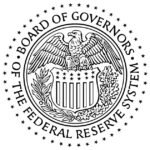Compliance by Ukrainian residents with the deadlines for settlements under foreign trade contracts is closely monitored not only by banks but also by tax authorities
The issue of returning foreign currency earnings is extremely relevant given the martial law conditions.
When Ukrainian companies conduct trade transactions with non-residents (payment for imported goods, works or services or export of goods, works or services), the currency or goods must enter Ukraine within a certain period of time set by the NBU.
The deadline for settlements is the time within which either payment for import transactions or delivery of goods for export transactions must take place in accordance with the foreign economic contract.
Prior to the outbreak of a full-scale war, this period was 365 days, and for transactions made from April 5, 2022, the deadline for settlement is 180 calendar days.
At the same time, tax audits on compliance with currency legislation are not subject to the moratorium and are among the simplest in terms of mechanism.
Penalties are calculated according to the following rules:
- the penalty is accrued from the first day following the currency supervision deadline, i.e. from the 181st day. It amounts to 0.3% of the amount of unpaid contractual payment (the value of the goods that have not been delivered) for each day overdue;
- the penalty is accrued in hryvnia if the contract is in hryvnia or in the hryvnia equivalent if it is concluded in a foreign currency;
- the total amount of the accrued penalty does not exceed the amount of the debt.
Penalties are calculated by the tax authority. Tax authorities first conduct a tax audit and record violations in the audit report. If the taxpayer does not challenge it, they are sent a corresponding tax decision notice (TND). Such a penalty is included in the monetary obligations of the resident taxpayer and is payable within 10 business days after receiving the TND.
However, there are several possible options that can help business entities to resolve the situation legally if the return of foreign currency earnings is not possible within the deadlines.
Obtaining a conclusion from the Ministry of Economy on the extension of the deadlines for the fulfillment of a foreign economic contract. It is necessary to apply to the relevant department and obtain such a conclusion before the deadline for settlements under the contract.
This procedure is effective, but it is important to understand that not all foreign trade contracts are subject to extension, for example, if the issue concerns the provision of services. In particular, our law firm has faced a situation where a client ordered the development of design and estimate documentation abroad for the further construction of a production line. It was difficult to justify this case as falling within the list of goods and services for which the Ministry of Economy may issue an opinion. It is important to keep in mind what exactly is the subject of the contract.
Documents for obtaining such a conclusion must be submitted in advance, and not when there is already a delay, in which case a penalty may be charged from the date of its occurrence to the date of application to the ministry.
The documents must be submitted to the Ministry in electronic form. In addition to meeting the deadlines, it is important to clearly prepare a complete package of documents with justification as to why such foreign currency earnings were not returned on time.
Filing a lawsuit against a non-resident or initiating arbitration (depending on the terms of the agreement).
For the period of the court proceedings, the accrual of penalties for violation of the deadlines will be suspended. However, if the client loses the case or the proceedings are terminated for one reason or another without crediting the funds or delivering the goods, the penalty will resume. Moreover, the penalty will also be charged for the period of court (arbitration) proceedings.
In this case, there are additional nuances. For example, if the company filed a lawsuit, and it ended not with a decision on recovery, but with a settlement agreement as a result of which the plaintiff received funds, in the future, since this is not clearly stated in the law, it may be necessary to prove during a tax audit that such a return of foreign currency earnings was the result of these processes.
Set-off of counterclaims if the parties to the agreement “owe” each other money. The obligation to pay the funds is terminated, and the transaction is “removed” from currency control only if the offset is carried out before 05.09.2022. On September 6, 2022, certain amendments to the bylaws came into force, namely to a number of NBU resolutions and instructions that prohibited such cross-border settlements. In fact, when banks refused to withdraw a contract from currency control, they referred to this, even if there was no movement of goods or funds between the parties.
Applying to the authorized body of the country of location of the party to the foreign economic contract to obtain a document (certificate, certificate, etc.) certifying the existence of force majeure.
A party’s reference to force majeure as a ground for exemption from liability, even if confirmed by a relevant certificate, has no predetermined force. These circumstances shall be proved in a general manner in each case during the tax audit and/or when the parties apply to the court. They will be considered in conjunction with other circumstances and evidence. The interested party, referring to force majeure, must prove how it affected specific obligations.
Obtaining a certificate from the Chamber of Commerce and Industry in Ukraine, its territorial divisions or authorized bodies abroad.
There are two important aspects in this case. First, it is not easy to obtain such a certificate – there must be a solid evidence base that certain force majeure circumstances caused the failure to fulfill the terms of the contract.
Secondly, even if you have such a certificate, you should provide as many additional documents as possible during the tax audit to trace the causal relationship. The existence of a CCI certificate does not exempt from liability for failure to meet the deadlines for returning foreign currency earnings, and accordingly, the tax authorities or the court will either take this into account or not.
I would like to note that there is also a positive court practice on the so-called «covid periods», which limited the application of penalties for the period of quarantine due to the coronavirus, and the penalties accrued but not paid during this period were subject to write-off. This provision is contained in the transitional provisions of the Tax Code.
In addition, in several cases that we are currently working on, we argue that the National Bank may impose protective measures in the form of deadlines for settlements under foreign trade contracts for a period not exceeding six months. They were last introduced by NBU Board Resolution No. 113 of July 7, 2022, and came into force on July 9, 2022. That is, the six-month period expired on January 8, 2023, and as of now, these deadlines have not been set. However, the courts are more inclined to accept other arguments, such as the existence of a CCI certificate. However, we expect that this issue will eventually be assessed at the level of the Supreme Court.
The expert voiced this opinion during the roundtable discussion «Problems of exporters during the war: regulatory challenges» organized by GMK Center.




















